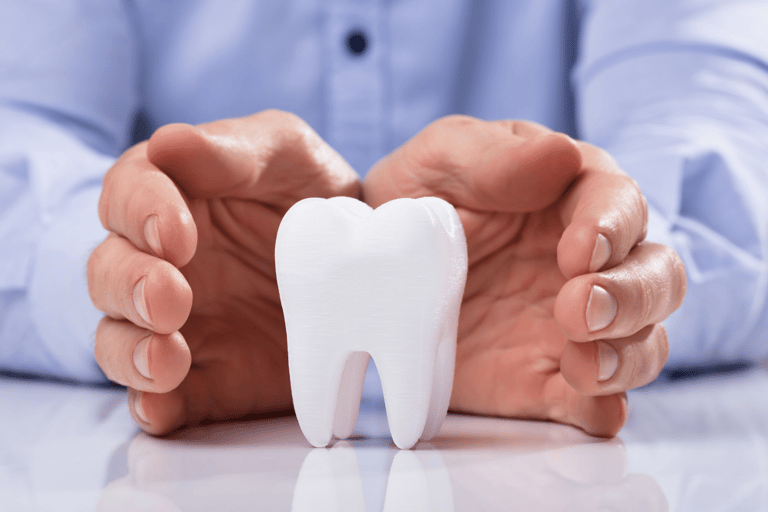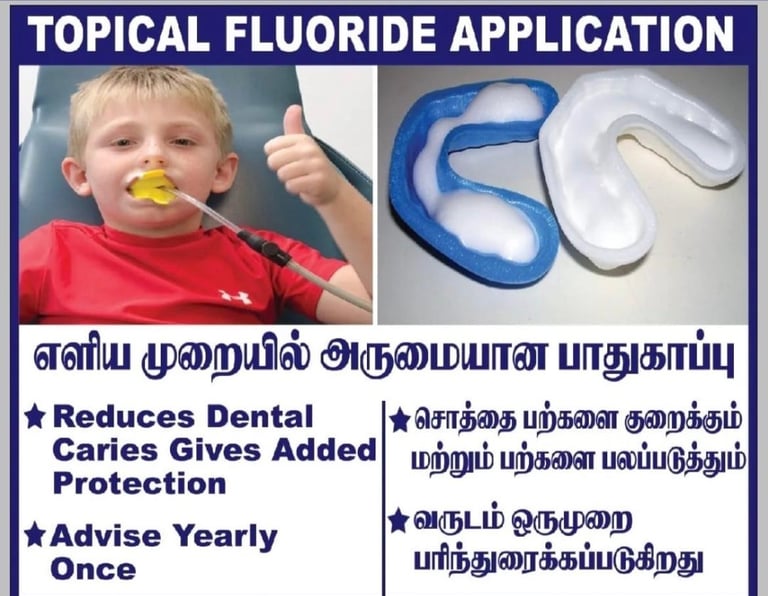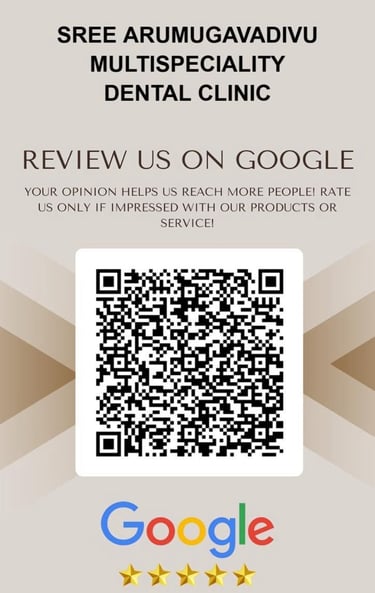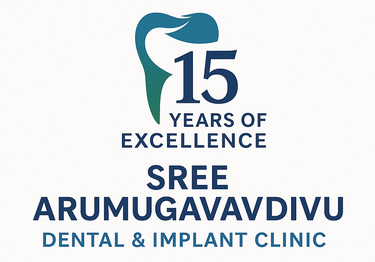Preventive Dentistry in Erode – Protect Your Smile Before Problems Start
Introduction
Prevention is better than cure. At Sree Arumugavadivu Dental, Erode, we offer preventive dental care to stop problems before they begin.
Services We Provide
Regular dental check-ups
Scaling & cleaning (tartar removal)
Fluoride treatments for cavity protection
Pit & fissure sealants for kids
Oral health educationve Dentistry
Proactive Care for a Healthy Smile
Benefits of Preventive Dentistry
✔ Avoid costly treatments later
✔ Maintain fresh breath and healthy gums
✔ Protect children’s teeth from decay
✔ Early detection of dental problems
📞 Book your preventive dental check-up today for long-term oral health.
Common Preventive Dentistry Practices
Regular Dental Checkups and Cleanings: Professional cleanings remove plaque and tartar buildup, while examinations allow the dentist to identify and address potential issues early on.
Fluoride Treatments: Fluoride strengthens tooth enamel, making it more resistant to decay.
Dental Sealants: These protective coatings are applied to the chewing surfaces of molars to prevent cavities.
Dietary Counseling: Dentists can provide guidance on a healthy diet that minimizes the risk of tooth decay.
Oral Hygiene Education: Dentists and dental hygienists educate patients on proper brushing and flossing techniques.




Advantages of Preventive Dentistry
Reduced Risk of Cavities and Gum Disease: Regular preventive care significantly reduces the risk of developing these common dental problems.
Early Detection and Treatment: Early detection of issues allows for prompt and less invasive treatment, saving time and money in the long run.
Maintained Oral Health: Preventive dentistry helps maintain healthy teeth and gums throughout life.
Improved Quality of Life: Good oral health contributes to overall well-being, affecting speech, nutrition, and self-esteem.
Cost-Effectiveness: Preventive measures are often more cost-effective than treating advanced dental problems.


Why us
Quality dental care
Patient comfort
Advanced treatment
Time flexibility
Experienced dental care
Best followup action
Best preventive care
Contact us
8300693295,8300693297 & 9843454814
© 2024. All rights reserved.


